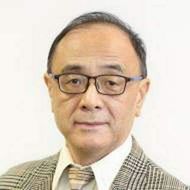The return of Mao-era practices: New threat to China's political and economic modernisation
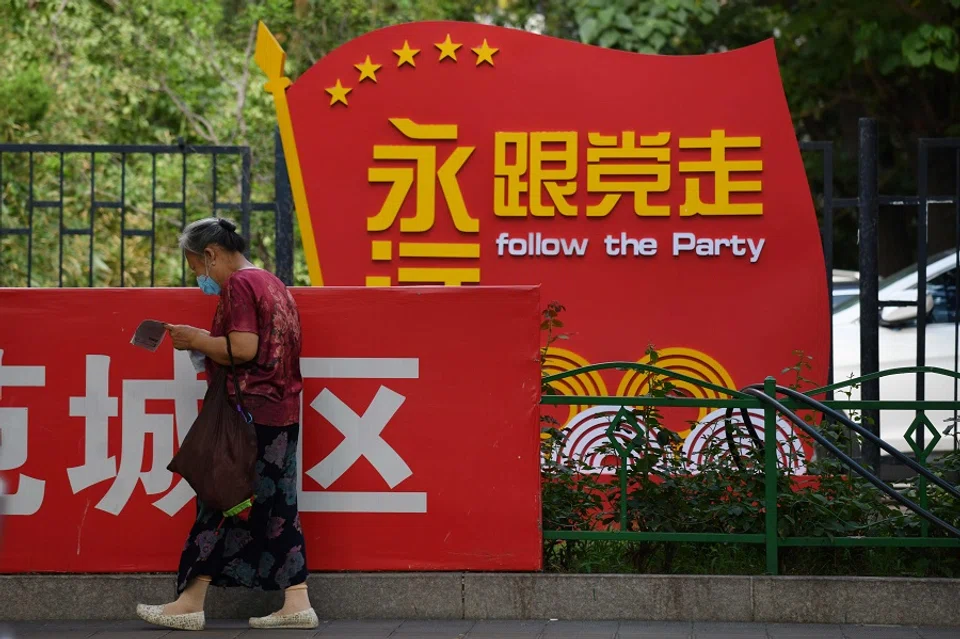
Apart from a few countries that are still sticking to a monarchical system of government in name, monarchy is basically nonexistent in modern politics. In democratic countries with universal suffrage, the government gains legitimacy in a clear manner: the one with the most votes governs. The former Soviet Union, China, Vietnam, former Yugoslavia, Cuba, and so on gained the right to govern through internal revolutionary movements, as did the Republic of China, South Africa, India, Indonesia, Turkey and so on. First-generation leaders struggled to seize power - revolutionary success legitimised their right to govern; there is basically no doubt about that.
A leader such as Lee Kuan Yew with all-rounded talents is one in a million.
However, it is one thing to establish a government, but quite another to govern. As the Chinese saying goes, "It is easy to seize power but difficult to maintain it." There is no lack of successful revolutionaries who have failed at governing the country. A leader such as Lee Kuan Yew with all-rounded talents is one in a million.
Socialism and monarchy are at opposite ends of the spectrum: the ruling Communist Party is atheist, and so the "divine right of kings" doctrine does not work. Yet, the idea of "a vanguard party" also runs counter to democracy with universal suffrage (how can a backward people elect an advanced political party?). So what's the solution? One needs to introduce the concept of "performance legitimacy", that is, the maintenance of legitimacy through political performance. There are two ways to do this.
Blind obedience in the Mao era
The first way is to fully indoctrinate the people with the ruling party's ideologies, ideas, and values so that they would agree with the party's long-term vision and short-term goals. Then, the people and the government would be of one heart and one mind - whatever plan the party has made, the people would follow and willingly make contributions and sacrifices to meet the goal.
At the same time, the people would be led to believe that the country was improving by the day - the country would launch "satellites" every day (during the Great Leap Forward, the fictitious reporting of astronomically high grain output was known as launching agricultural "satellites"), making life sweeter than honey. This was the path chosen by the Chinese Communist Party (CCP) during the Mao Zedong era, and also the current approach taken by North Korea.
With the widespread feeling of being deceived for a long time, there is a sudden outburst of indiscriminate anger against communism inside and outside of the party. This is the main reason and psychological mechanism for the sudden collapse of the Soviet Union and Eastern European communist regimes.
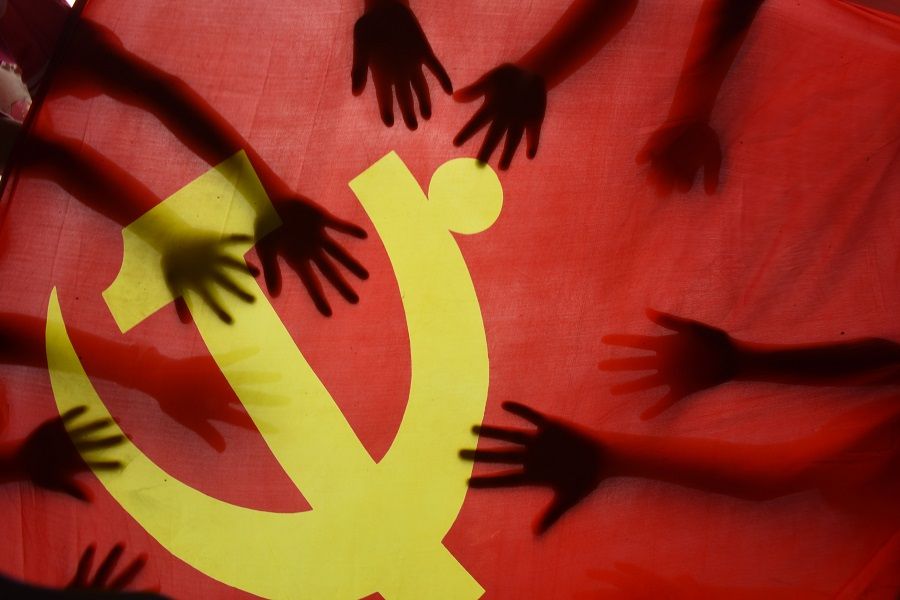
However, there are two problems with this path. Firstly, the country has to be closed off. In particular, information from the outside world has to be blocked so that the party can monopolise the domestic discourse and indoctrinate the people. Secondly, a bureaucratic establishment that lacks democratic supervision will result in large-scale corruption, privilege, and disengagement from the masses. These run counter to the daily-publicised official narratives of a communist spirit and heroic deeds, and will engender widespread public discontent, not to mention spawn a posse of doubled-faced and selfish cadres.
On the other hand, autarky inevitably results in backwardness, which in turn makes one the target of attacks. This is the main lesson of modern Chinese history, making reform and opening up an unavoidable decision. However, once a country opens up, it cannot continue on the first path anymore.
In the early stages of reform and opening up, the cognitive dissonance between internal and external situations shakes people's faith in the system. With the widespread feeling of being deceived for a long time, there is a sudden outburst of indiscriminate anger against communism inside and outside of the party. This is the main reason and psychological mechanism for the sudden collapse of the Soviet Union and Eastern European communist regimes.
Various opinion polls on government satisfaction have also shown that support for the Chinese government has been among the highest in the world.
Political legitimacy through tangible achievements
The second path is the one chosen by the CCP since reform and opening up - abandoning the planned economy and achieving modernisation by integrating into the world capitalist system such that its developmental speed surpasses that of capitalist and other developing countries.
Over the past thirty to forty years, China has grown by leaps and bounds on this route and become a risen superpower. Different from the "pie in the sky" (comforting yourself with fantasies) situation during the Mao era, such political performance is concrete and has materialised in the people's pockets and through a raised standard of living. Various opinion polls on government satisfaction have also shown that support for the Chinese government has been among the highest in the world.
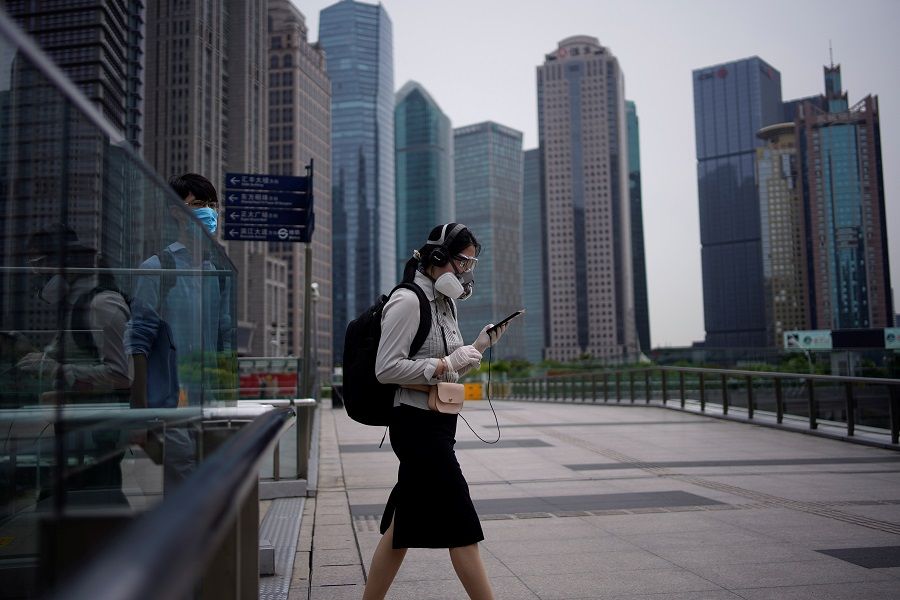
However, this does not mean that problems with the Chinese political system have been solved. For example, corruption is still present and much more serious than the Mao era; double-faced and selfish exploiters are still multiplying; and knave and eunuch cultures are still rampant amid the strong hold superiors have on their subordinates. In recent years, informants have also made a comeback among some groups of people, challenging the bottom line of what it means to be human.
New problems the country faces include the income gap, oligopoly, criminal gangs and local bullies, moral decline, lack of social trust, and issues of unemployment, healthcare, environment and food safety. If economic growth continues to slow, these problems could escalate into political ones, leading to the gradual failure of the second path that relies on the people's "sense of gain".
The reemergence of personality cult
What we have discussed so far speaks about the legitimacy of a political party. The situation is different when it comes to the individual leaders of the ruling party.
As earlier mentioned, the authority of first-generation leaders had a proven record from long periods of struggle and battle - this is generally accepted inside and outside of the political party. However, when the ability of founding the country is not matched with that of running the country, problems emerge. Dissenting voices and factional struggles then start to arise in the party. A commonly used solution is the "great leader model".
Founders of a revolutionary regime are usually unmatched in waging revolutionary movements.
There are many aspects to this model. The first and foremost is the deification of the top leader. Secondly, it involves comprehensively purging opposers or potential challengers. This process was extremely cruel in history. For example, Stalin's Great Purge of the 1930s killed almost every other leader of the October Revolution. Close to 90% of all top generals were executed, a factoring contributing to the defeat of the Red Army in the early stages of the Great Patriotic War (a reference to WWII by the Russians) and the capture of millions by Nazi Germany. "Ruthless struggles and merciless attacks" (残酷斗争,无情打击) was what Communist leader Wang Ming brought to the CCP from the Soviet Union. The third aspect of this model is treating peacetime construction as a revolutionary movement.
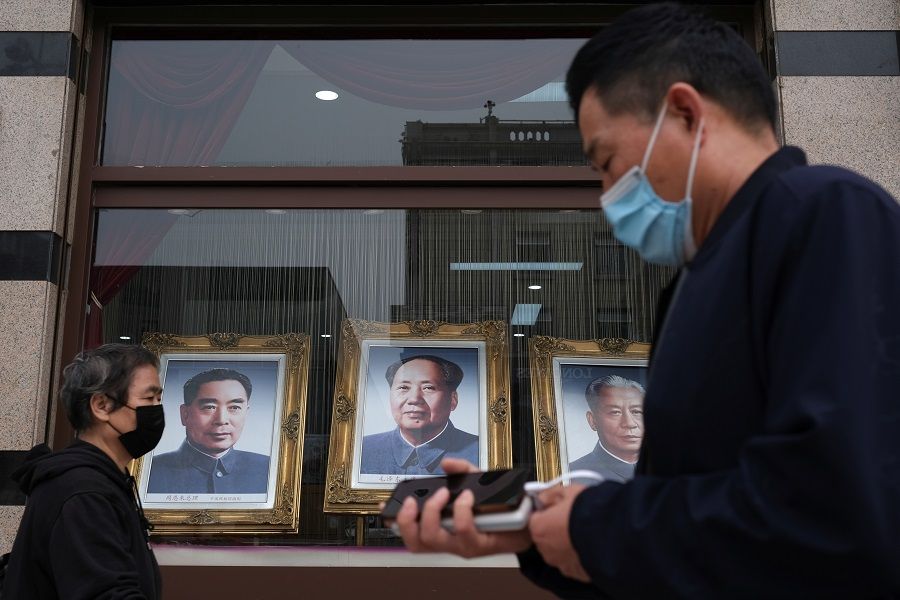
Founders of a revolutionary regime are usually unmatched in waging revolutionary movements. In fact, the ruling party is structured for movements. For example, Mao insisted on the theory of "continued revolution under the dictatorship of the proletariat" (无产阶级专政下的继续革命) and started a series of big and small movements up until his death. He firmly believed that the party bureaucracy led by Liu Shaoqi and Deng Xiaoping was the breeding ground of the "new bourgeoisie" (新生资产阶级) and emphasised that class struggles must be talked about "every year, every month, and every day". He called the CCP's Propaganda Department the "palace of the King of Hell" (阎王殿) and urged the people to "overthrow the King of Hell and emancipate the little devils" (打倒阎王,解放小鬼). The Cultural Revolution that lasted for ten years was the pinnacle of his revolutionary career. As the "red sun" that shone above a sea of red flags, Mao's status was sacred and inviolable. Yet, a cult of personality is extremely detrimental to a country.
It would be restricting what the whole nation can achieve with the height attainable by one individual, and imprisoning the independent thinking of a whole people with the thoughts of one person.
In imperial China, it did not matter if the one sitting on the throne was a fool - as long as he was of royal bloodline and had assumed the throne legitimately. People were in awe of the emperor but did not worship him. Governance mainly relied on the experience and wisdom of the ministers, institutions and traditions, as well as wise words left behind by sages and classical texts of Confucianism, Taoism, and Buddhism. However, the "great leader model" demands that the top leader be omnipotent, omnipresent, and hold paramount authority in all areas. It requires the top leader to be a philosopher, thinker, strategist, writer, poet, historian, economist, politician, sociologist, and jurist all at once - Stalin even published a monograph on linguistics, while the three generations of North Korea's Kim family are known for their literary and artistic creations.
Every sentence of theirs must count, and each one of them must be held in high regard. In other words, in today's world, only deities are qualified for the throne. However, all people are mere mortals with weaknesses and inadequacies. Treating an ordinary man as god and forcing all people to worship him would be equivalent to turning one's weaknesses and limitations into the weaknesses and limitations of an entire nation. It would be restricting what the whole nation can achieve with the height attainable by one individual, and imprisoning the independent thinking of a whole people with the thoughts of one person.
They would sit back and do nothing, waiting for the "great leader" to make a fool of himself. They would even attempt to undermine the top leader and cause harm to the country as a result.
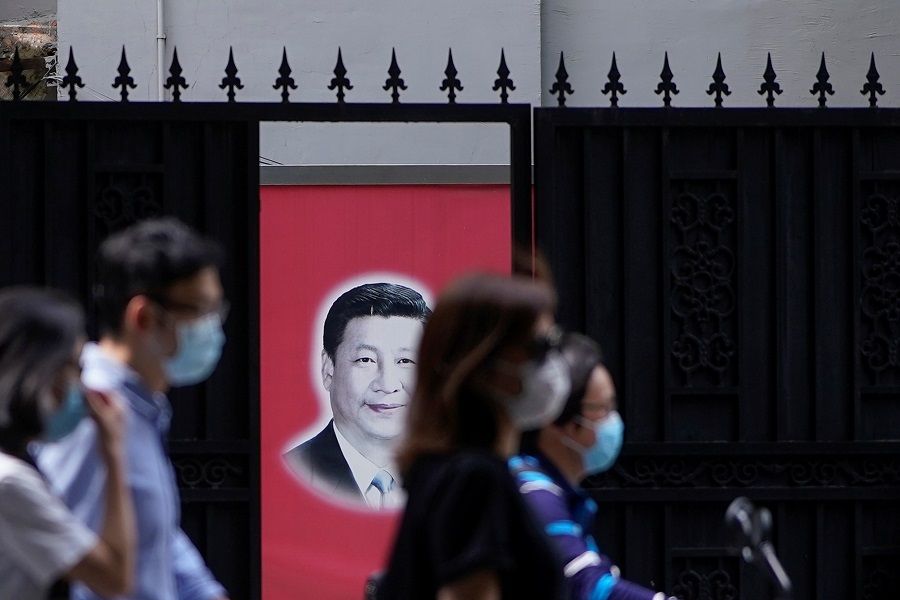
This model becomes more dangerous after the generation of founding fathers passes away. Firstly, while the ruling party can maintain its legitimacy through performance, the people in the party are unable to gain authority through the same means. This is because everyone rose to their respective positions by progressing through the ranks. Apart from luck and personal networks, everyone is on par with one another. Behind every appointee to a top seat, there would be hundreds who could match or surpass him/her in capabilities or seniority. In the absence of recognised outstanding abilities and achievements, authority would have to be built with oppression, cult of personality, forcefully imposing authority, and churning out books of speeches and coercing the party and nation to study them like a Bible. Yet, everyone sees through such antics and only feign compliance. They would sit back and do nothing, waiting for the "great leader" to make a fool of himself. They would even attempt to undermine the top leader and cause harm to the country as a result.
In recent years, however, the CCP is making a return to the first path and reviving many practices of Mao's era.
Secondly, as non-founding generations of "great leaders" were artificially made by pulling bootstraps, they need a large volume of mediocre talents to blow their trumpets and have to promote a large number of proteges. This encourages opportunists and people lacking integrity, poisoning the political atmosphere and threatening political stability as a result.
Rationalisation and secularisation needed
In contrast, Deng Xiaoping had a clear sense of this. He pointed out that the stability of China lies in strong institutions, not on putting all bets on a single leader. The mixed system following reform and opening up has delivered spectacularly, but is not mature and robust. It needs consolidation through innovation and improvement.
In recent years, however, the CCP is making a return to the first path and reviving many practices of Mao's era. For example, tightening control over information flow and restricting freedom of speech, enhancing propaganda and ideological and political indoctrination, emphasising obedience and absolute loyalty, rebuilding the party's "unified leadership" (一元化领导) and advancing the ideal of the party acting for the government (以党代政), and promoting the country's "red culture". Cults of personality also flash back from time to time.
A misguided thinking behind all this is crediting the achievements of reform and opening up to the original system instead of the reforms to the system, and erroneously thinking that remaining true to their original aspirations entails returning to the old system.
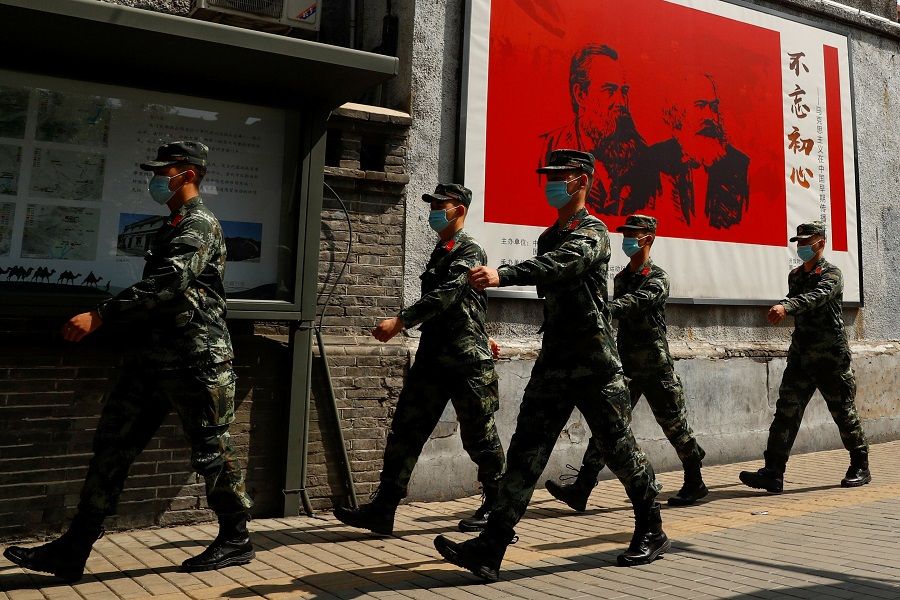
A misguided thinking behind all this is crediting the achievements of reform and opening up to the original system instead of the reforms to the system, and erroneously thinking that remaining true to their original aspirations entails returning to the old system. A political regression would certainly result in an economic fallout. The stagnation of political reforms would result in the cessation of market reforms, and the international repercussions would be the dawning of a new Cold War. This is clear for all to see.
A political system should be built upon modernised standards and not revolve around consolidating someone's power or fulfilling temporary political needs.
The crux of political reform is modernisation. Political modernisation does not necessarily manifest itself through elections. It is mainly expressed through rationalisation and secularisation. Rationalisation refers to doing things according to science, reason, common sense, rules and regulations, and recognised standards - it is the focus on tasks and not certain personality. Secularisation refers to the abandonment of the "great leader model" in pursuit of the idea that all men are equal before the law, system, procedures and axioms, and conscience. These two concepts do not necessarily involve convergence to western democracy. Both contain prospects for innovative transformation.
The "great leader model" emphasises blind obedience and foolhardy loyalty. In the past, this is called feudal; in the present it is anti-modernisation. A political system should be built upon modernised standards and not revolve around consolidating someone's power or fulfilling temporary political needs. This should be the guidance to China's political reform, and only this can provide the soul to institution building in recent years.
Related: Modernise China's governance? Get rid of deities and emperors | China's governance model: The way forward for today's world? | Making the great leap forward: When will the Chinese person stand up? | Will Covid-19 be the catastrophe that ends China's good fortune? | The construction of the Singapore Model in Mainland China
